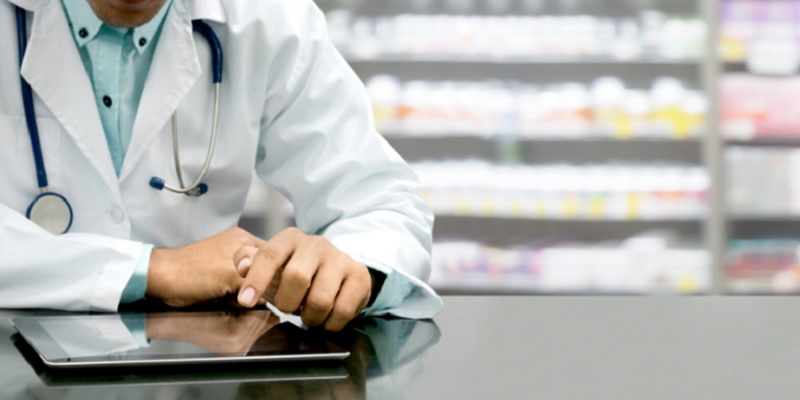Researchers have long recognized that silos in healthcare represent a major issue in the efficient delivery of care. Until recently, patients have gone from the hospital or primary care doctor to the specialist to the pharmacist, with little interaction between professionals along the way. Coordination and collaboration do happen, but sporadically. Now, modern technology is helping break down those silos, especially as they pertain to the practice of pharmacy.
New remote patient monitoring (RPM) applications connect pharmacists to the mainstream of patient care, giving them access to data and communication tools that they can use to have an even larger impact on health outcomes, beyond the standard role of dispensing and consulting on medications.
By studying remote patient monitoring use cases, we can learn more about how this technology enhances care and gives pharmacists, including specialty pharmacists, more opportunities to practice at the top of their licenses.
Monitoring Compliance/Adherence with Complex Therapies
In 2019, CVS Specialty Pharmacy, a division of the pharmacy chain, conducted a trial examining the effectiveness of two-way text messaging for patients with CML leukemia.
The goal of the study was to explore two-way clinical messaging, with CML patients being treated with tyrosine kinase inhibitors. Researchers wanted to understand the effectiveness of two-way texting in comparison to patients enrolled in one-way refill reminders.
The program offered educational tools and coaching support. Participants were followed for 365 days after obtaining their first doses of medication, with the goal of studying adherence rates as measured by variables such as:
- Medication possession ratio
- Length of therapy
- Gap days between refills
The results: the two-way clinical messaging program resulted in superior compliance to prescriptions as written with members in treatment for this devastating form of leukemia.
Expanding Outreach to Underserved Populations
RPM technology capabilities can fill an important gap in the pharmacy profession at a time when the dynamics of the business are changing. Large retailers that expanded dramatically into the pharmacy business are now pulling back, leaving remote locations underserved and some areas without easy access to pharmacists.
Using RPM, pharmacists can extend their reach into rural areas. The technology also forges connections between pharmacy professionals and specialty clinics, residential care homes, urgent care centers, schools, and prisons.
Veterans in rural areas represent a particularly vulnerable population because they live far from population centers with better-developed health facilities. Their access to specialists is limited mainly by geography.
A Veterans Administration program successfully utilized RPM technology to expand the reach of specialty pharmacists to address the many concerns of veterans.
The agency is an innovator in the use of telehealth services for veterans’ care and reported reaching more than 1 million veterans in 2018, more than half of whom live in rural areas. This approach of using technology to reach underserved populations grew dramatically in the wake of the COVID-19 pandemic.
Patient Education, Medication Monitoring
RPM enables pharmacists to connect and engage with patients more often and more completely, as a study involving Rx Clinic Pharmacy in South Carolina showed.
As part of the study, patients were provided devices to measure their blood pressure and weight at home; the devices transmitted the data to their medical records, accessible by the pharmacy.
If readings fell outside of the defined range of normal, a pharmacy technician flagged the case to the pharmacist, who could then proceed to conduct outreach and intervention. The pharmacist contacted the patient by phone to determine if escalation was needed.
Some readings outside of the normal range were at a level that could be addressed through patient counseling. Others required escalation to the supervising provider.
The RPM study involving the South Carolina pharmacy was further expanded to allow for intensive medication evaluation and management, lifestyle counseling, preventive screening recommendations, and enhanced coordination of care, with excellent outcomes.
RPM Solutions for Integrated Pharmacy Care
Given a globally aging population and a continued strain on healthcare resources, Dignio has committed to a mission of making healthcare less dependent on time and place. Through Dignio Connected Care, the company is working to break down silos and bring patients and clinicians closer together through various forms of technology.
The Dignio platform includes solutions for patients, providers, and caregivers alike, enabling greater communication and collaboration. The Dignio team is convinced that pharmacists are underutilized in the delivery of care, often left to the end of a chain of decisions, where they are isolated from having maximum impact.
Integrating remote patient care modalities into the pharmacy workflow is a way of capitalizing on the skills and knowledge of the pharmacist in a way that leads to better patient outcomes, particularly for those who are chronically ill.
Dignio helps community, LTC and specialty pharmacists leverage remote patient care technology in order to practice at the top of their license, allowing pharmacies to deliver greater value to patients and caregivers, while generating more profitable revenue for the pharmacy location.
If you’d like to see how Dignio helps pharmacies make an even bigger positive impact in communities and drive greater profit margins while doing so, feel free to reach out to our Connected Care Team today!
